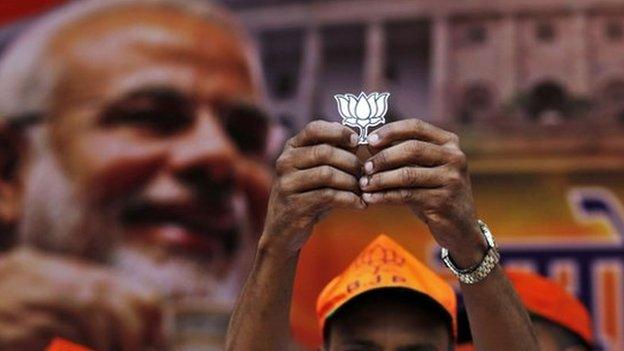Who did India's Muslims vote for in general election?
- Published
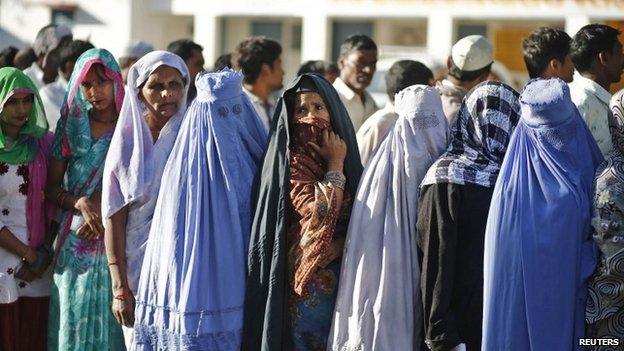
Muslims comprise 13% of India's billion-plus population
The resounding victory of the Bharatiya Janata Party (BJP) in India's recently concluded general election is being interpreted by some as a religious vote in favour of the Hindu nationalist party.
It is true that the politically crucial states of Bihar and Uttar Pradesh - the two account for 120 of the 543 seats in the parliament - witnessed a decisive shift of votes of the upper castes, caste groups known as Other Backward Classes (OBC) and lower-caste Dalits (formerly known as untouchables) in favour of the BJP.
But it may be inappropriate to say that all those who voted for the BJP were motivated to vote for the party due to its ideology of Hindutva (Hinduness).
People voted for the BJP due to huge dissatisfaction with the former Congress led-government, a desire for change and an attraction for the party's prime ministerial candidate Narendra Modi. The popular vote also cut across age, gender and social backgrounds.
Sections of the Hindu upper castes voted overwhelmingly in favour of the BJP. But his was hardly a reaction to a perceived consolidation of Muslims - who comprise 13% of India's billion-strong population - against the party.
Speculation
A survey of the poll results by the Delhi-based Centre for the Study of Developing Societies (CSDS) reveals that the recent election saw a marginal shift of the Muslim vote in favour of the BJP.
The survey indicates that 8% of Muslims voted for the BJP and its allies, nearly double from the 2009 polls.
But even in the past, Muslims have voted for the BJP in similar numbers - 7% of Muslims voted for the party and its allies in the three general elections held in 1998, 1999 and 2004.
There was a lot of media speculation in the run up to the elections that Muslims would vote heavily in favour of the Congress or the new anti-corruption Aam Aadmi Party (AAP).
The CSDS survey indicates that 38% of Muslim voters cast their ballots for the Congress and its allies - around the same as in the last election in 2009.
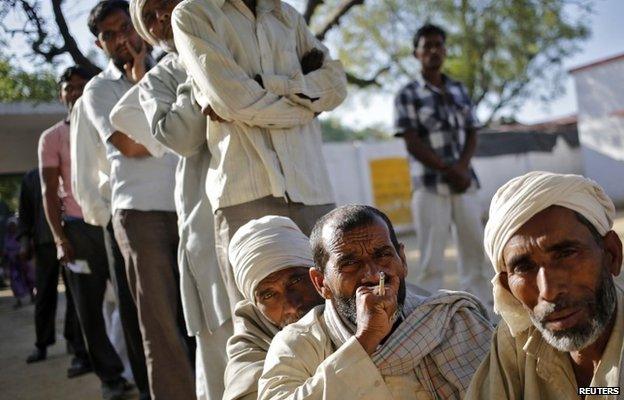
The recent election saw a marginal shift of the Muslim vote in favour of the BJP
Over the last few general elections, a little more than a third of the Muslims have consistently voted for the Congress.
The AAP failed to attract the Muslim vote except in Varanasi constituency where party leader Arvind Kejriwal was contesting against BJP's prime-ministerial candidate Narendra Modi. The AAP also attracted a sizeable proportion of Muslim votes in the capital, Delhi.
Though the Congress party mopped up as much of the Muslim vote as it had secured in the 2009 polls, the community's support for the party was not uniform across the country.
In states like Madhya Pradesh, Rajasthan, Gujarat, Chhattisgarh, Uttarakhand and Himachal Pradesh, where Congress was directly pitted against the BJP, the Muslims, in general, voted overwhelmingly in favour of the Congress.
But in states like Uttar Pradesh and Bihar, where Congress was not in a position to put up a direct challenge to the BJP, a large number of Muslims voted for powerful regional parties like the Samajwadi Party and the Rashtriya Janata Dal.
Sanjay Kumar is a political scientist and the director of Centre for the Study of Developing Societies (CSDS)
- Published26 May 2014
- Published21 May 2014
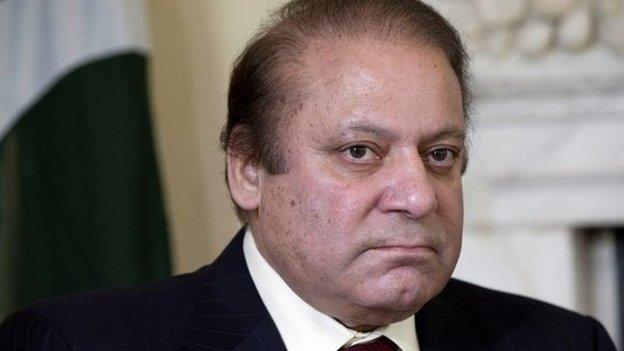
- Published26 May 2014
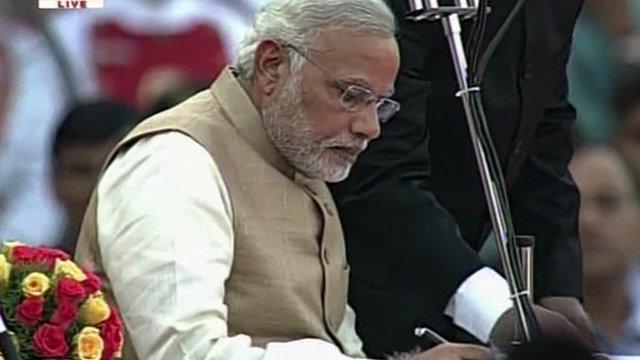
- Published26 May 2014
- Published16 May 2014
